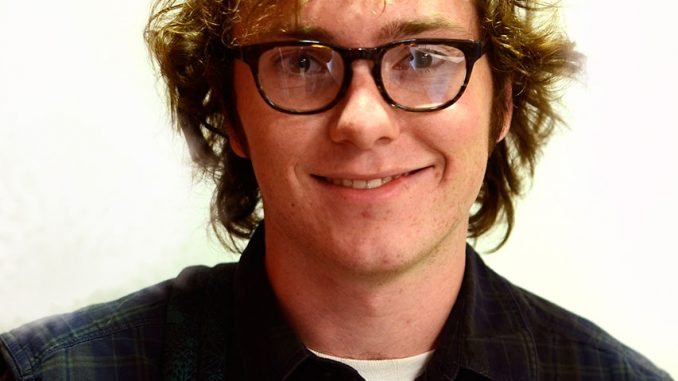
 Environmental activism is sprouting like wildflowers across the university, luckily with no apparent shortage of volunteers – but more people should feel compelled to get involved. On Main Campus, students can lead art programs, clean up vacant lots, plant trees, compost, canvass, garden and educate the community.
Environmental activism is sprouting like wildflowers across the university, luckily with no apparent shortage of volunteers – but more people should feel compelled to get involved. On Main Campus, students can lead art programs, clean up vacant lots, plant trees, compost, canvass, garden and educate the community.
The greatest part of all this activism is that the majority of those getting involved are gladly offering their free time.
Community efforts with an environmental emphasis can have remarkable outcomes. “Reduce, reuse and recycle” is a founding concept used for every earth-friendly job, leading to a more clean and attractive campus. Unfortunately, this reduce, reuse and recycle philosophy is not innate.
Temple needs more volunteers to donate their time to help instruct the local community. Exemplary teachers and tutors have flocked to the neighborhood Tree House Books after-school facility on West Susquehanna Avenue. There is a garden in the back of the building that introduces the local students to the positivity of being outdoors. Kids are usually thrilled to help out with planting and watering, volunteers said.
“Teaching the kids is important because I believe that a healthy connection with plants and nature [will] foster healthy minds, bodies and spirits,” Mira Kim, a junior community development major, said of student volunteering. “Gardening exposes humans to a whole other realm of skills and senses. When a child realizes this, they can be empowered in a whole new way.”
With budget cuts to the local school district, college students should consider the impact they can have if they get involved. Instilling an appreciation of the environment at an early age is paramount.
Other nonprofits on the outskirts of campus, such as the Wagner Free Institute of Science, have summer camps with potential internships for students. Teachers, scientists and artists collaborate to introduce children to science in a constructive, intriguing way.
Kids can see science demonstrations, learn through hands-on lessons and create artwork representing what they have done.
Temple Community Garden paired up with Kairos House, a homeless shelter on Broad Street. People who normally would have no access to community gardens can benefit from the healing nature of gardening at Broad and Norris streets, where students teach gardening tactics and the value of healthy food.
“People from Kairos House come, not so much to garden, but to socialize,” said Joyous Elisabeth, a junior art education major. “[It helps] the homeless to make connections and teaches them about real food, but it helps students, too.”
I couldn’t agree more with Elisabeth. Volunteering is a mutually beneficial experience for all parties involved. It’s an experience students shouldn’t pass up.
Lot cleanup in the neighborhood is a great way for students to get involved with promoting the value of the environment in the community. Organizations such as Temple Student Government, Tree House Books, Students for Environmental Action, TCG, Philadelphia Urban Creators and Grow Food, Not Loans have been leading that cause.
With dozens of lots cleared from trash and debris, these kind folks, particularly those from Urban Creators and Grow Food, Not Loans, will often convert the area to garden space. They then introduce it to the local community to be maintained by residents.
It’s not just vegetable and herb gardens that should be developed by environmentally conscious students.
Facebook helps to gather crews to plant fruit-bearing trees. Students like senior sociocultural anthropology major Alexa Zerkow are leading groups to orchards like the Philadelphia Orchard Project’s sites.
“Philly is booming with transforming vacant lots and planting new orchards,” Zerkow said. “Unfortunately, people are not [typically] involved from seed to plant. But Philly is a remarkable city because of the vast network of volunteering options, and it is not always difficult to find volunteers.”
Students should remember that their participation in volunteering efforts can make all the difference for the environmental standard of living in the community – it’s what a good neighbor would do.
Toby Forstater can be reached at toby.forstater@temple.edu.


Be the first to comment